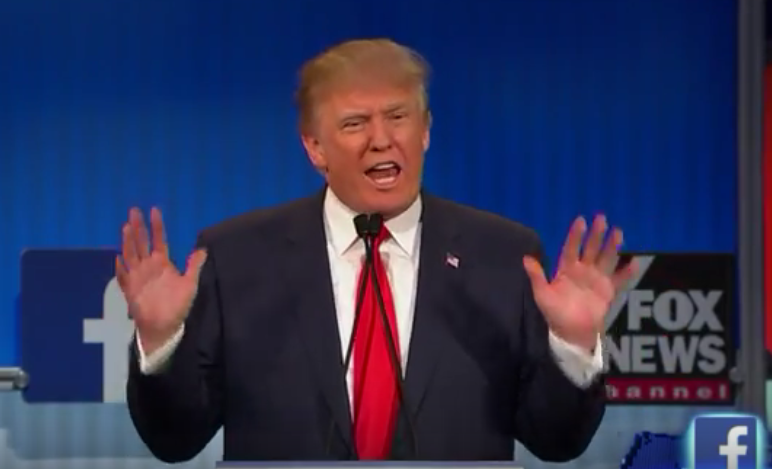
Why did Wisconsin’s Republican Party decide it immediately needed a voter ID law before the 2014 election?
The law’s proponents claimed it was necessary but offered no evidence — less than zero — to support that claim.
“As there is no evidence that voter-impersonation fraud is a problem, how can the fact that a legislature says it’s a problem turn it into one?” Reagan-appointed Judge Richard Posner wrote. “If the Wisconsin legislature says witches are a problem, shall Wisconsin courts be permitted to conduct witch trials?”
Read Ari Berman’s riveting new book Give Us the Ballot to get the whole story of how decades of voting rights being expanded turned into a conservative counterrevolution that gutted the Voting Rights Act created the in-person voter fraud to justify a new poll tax known as voter ID.
The Bush Administration hunted for fraud for half a decade and didn’t convict one American of voter impersonation. Another study found 31 cases of fraud that would have been prevented by an ID in more than a billion votes cast over more than decade.
While there is no evidence that voter ID solves a problem, there’s lots of evidence that it creates one by reducing turnout among groups that are most likely to vote Democrat.
A study from the non-partisan General Accounting Office found:
Black turnout dropped by 3.7 percentage points more than white turnout in Kansas, and by 1.5 percentage points more than whites in Tennessee after voter ID laws passed. Among 18 year olds, turnout dropped by 7.1 percentage points more in Kansas than it did among those aged 44 to 53 year-olds in Kansas. Turnout in Tennessee fell by 1.2 percentage points more among those aged 19 to 23 than among the older set.
So, in other words, these laws work exactly how conservatives intend them to.
Republicans bristle at the charge that voter ID laws are racist and then list all of the things we need ID to do. But the right to buy Sudafed isn’t like the right to vote.
John Lewis and the other marchers in Selma weren’t beaten fighting for the right to buy Sudafed. America doesn’t have a centuries-long history of denying the right to Sudafed to exactly the same groups that would be affected by Sudafed ID laws. America actually has a meth problem but our problem when it comes to voting is there is far too little of it going on.
Mocking the right to vote — which people alive today have literally bled for — is definitely a sign of racial insensitivity. But it isn’t a sign of a mouth-breathing, spittle-spraying racism, which why the tactic is so smart. Most voters even tend to support the laws in polls that don’t explain that in-person fraud is virtually non-existent.
Voter ID laws are a very visible example of strategic racism — before Donald Trump, they were perhaps the most visible example, though the drug war, which Michelle Alexander calls The New Jim Crow, is the most egregious.
“Strategic racism refers to the purposeful efforts to use racial animus as leverage to gain material wealth, political power, or heightened social standing,” Ian Haney López writes in Dog Whistle Politics.
The point isn’t racial animosity; the point is power.
Stereotypes of black criminality — fed by Fox News playing images of two Black Panthers at a polling place on a loop for years — are substantiated by stereotypes of laziness — Why can’t they get an ID?!
The purpose of the laws is to make getting an ID difficult — for certain people. And you never have to dig far into these stories to find an elderly African-America who was denied the right to vote unable to find the documents necessary to secure a new ID.
It’s against everything conservatives claim to stand for: costly, unnecessary regulations that needlessly deny essential freedom. But it’s all permissible in the name of gaining power.
Donald Trump likely isn’t racist. He’s happy to have Flavor Flav or Sinbad on the Celebrity Apprentice and surely has some black friends and employees.
But his appeal to the right wing was born of birtherism and has exploded as he’s fixated on immigration.
“If it weren’t for me, we wouldn’t even be talking about illegal immigration,” he said at the first GOP debate, which set a viewing record for a primary debate.
GOP donors wish this were true, but it isn’t. Republicans knew their candidates would be talking about immigration reform and hurting the party do so. This is why they told themselves to pass reform before this election.
What is true is they wouldn’t be calling immigrants “rapists.” Rather than reading directly out of Ann Coulter’s book, Ted Cruz would only be slyly alluding to it. All of the candidates would be shouting “Secure the border first!” — even though the border is more secure than ever — and then offering some sort of veiled reform plan. Trump now has raised the stakes to mass deportations. That seems like a step up in rhetoric — but the GOP House voted for exactly that kind of dystopian nightmare several times over the last few years.
“[Trump] avoids racial epithets and direct references to race, preferring to talk of immigration, nationality, and criminal behavior; these are, though, coded terms,” López explained. “In fact, his basic message is a racial one: this is a white country, under threat from invading minorities.”
This is strategic racism. But Trump’s recklessness is allowing many to see what the strategy is all about. Conservatives may decide to turn on the billionaire, but his appeal may be beyond them.
Donald Trump isn’t speaking to conservative activists or party leaders. He’s speaking to the folks conservatives have fooled with strategic racism, misogyny and homophobia into supporting policies that are voting the middle class out of existence. And after years of coded hate, his brash attacks feel like the truth.



